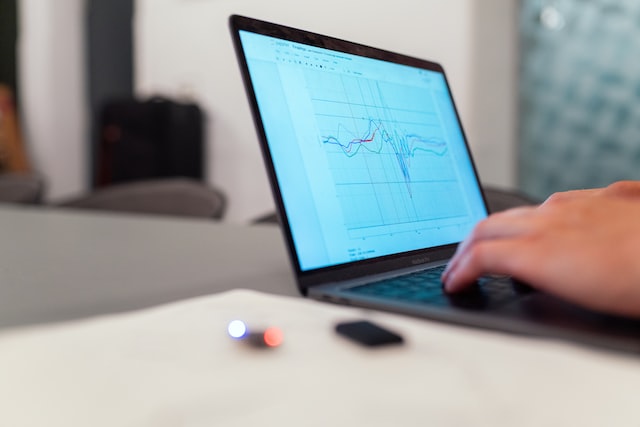Trends in Developing Healthcare Applications
Technological solutions are currently developing in many areas of our lives. The pandemic situation has proven how practical technological innovations can be also in the medical industry.
Technological solutions are currently developing in many areas of our lives. The pandemic situation has proven how practical technological innovations can be also in the medical industry. Healthcare is now experiencing a true digital transformation and the knowledge of the trends that now exist in the health tech market is valuable for not only helping to improve healthcare operations but also showing what solutions can gain a competitive advantage.
COVID-19’s impact on healthcare technology
COVID-19 turned out to be a big test for the healthcare industry. It was easy to see that health service systems worldwide are overstretched and inadequate. The solution to this problem is to invest in healthcare technology to support the work of the institutions to which we owe so much.
Among European health experts, a study has been conducted, showing that patient-owned health data will be the most important trend in the development of medHealth in the coming years. Why such an assumption? During the pandemic, Google and Apple collaborated to develop a COVID-19 exposure notification system, aimed at helping government agencies fight the virus, as experts around the world recommended the use of technology to identify and quarantine people affected by the disease.
Statista reported that the number of medical apps downloaded during the pandemic grew by 65% worldwide. Not surprisingly, the mHealth market has attracted many investors. Technological transformation in any area has probably never been so necessary.
Digital transformation
The moment a company decides to invest in a healthcare application, it must define the goals to be achieved. The digitalization process offers health care many new opportunities that positively affect productivity, management, and financial security. The company should choose a technology that will enhance the entire business operations.
mHealth refers to the use of mobile devices to support a healthy lifestyle. Trends related to this are therefore changing according to needs, just like in all other industries.
Trends that shape the healthcare application development process
To stay ahead of the competition, it’s a good idea to stay abreast of emerging trends and advances in the mobile health app sector.
Blockchain
Blockchain is a method of storing data in a way that makes it impossible to hack. Blockchain technology is therefore widely used, especially in areas such as the medical industry, which has a lot of data in its storage. First and foremost, blockchain in the medical industry is concerned with improving record management, drug tracking, and clinical trials. Blockchain is a great way to strengthen secure data exchange between doctors and drug supply chain management.
Big Data and personalized treatment
Let’s take an example – the LabPlus project enables automatic diagnosis based on test results and personalized medical history. In order to customize treatment, companies need to work with data and turn it over to analytics. Big Data is now finding its way into many areas of healthcare, and this trend will certainly not shrink in future years. Increasing the quality of medical services through health records is important in strengthening this industry.
Telemedicine
Telemedicine is by far the most popular trend in mobile health and deals with the use of telecommunications technology to allow doctors to diagnose and treat patients remotely. While this is no longer the original solution, the option is still useful in many situations.
It is worth mentioning that as many as 71% of consumers prefer it when their doctors use mHealth apps. So telemedicine solutions are sure to be appreciated by target users.
AI and predictive healthcare
Algorithms are already detecting tumors more effectively than radiologists. Artificial intelligence is certainly the future of the medical industry and will greatly affect all activities that require human interaction such as X-rays, test scheduling, or simple check-ups. There are already startups focusing on machine learning, developing innovative methods for assessing a patient’s health.
Virtual and augmented reality
Although AR/VR is mainly associated with the entertainment industry, it can be used successfully in healthcare. AR/VR will work well as teaching aids for medical students. These solutions can also find their use as aids for depression, visual impairment, or cancer.
Internet of Things (IoT)
Fitness trackers watch that measure blood pressure, headbands, and other wearable devices are extremely popular these days. With the rise in health awareness and the fashion for healthy living, users are eager to stock up on such solutions themselves, which are also being used in hospitals.
Cloud-based solutions
With cloud-based solutions, both electronic records and electronic medical records can be easily accessed, resulting in better data delivery at lower costs. Today, many services can be improved with cloud computing.
Gamification
How can game design improve health outcomes? The developers of Steppie decided to raise awareness of the impact of lifestyle on our health by offering motivating in-app rewards that can realistically improve users’ health (such as discounts on life insurance). Furthermore, gamification can positively influence patients’ well-being during stressful treatments and make them more friendly.
Educational applications
The target audience for such mobile app solutions is primarily healthcare professionals. Self-sourcing information from medical literature and journals through educational apps will help save a lot of time when searching for information and streamline the process of obtaining research results.
The future of healthcare mobile app development
There is a huge demand for innovative healthcare solutions that bring real help. The pandemic has shown that efficient technology in the medical industry is needed by all of us, not just the elderly or seriously ill. Not surprisingly, mHealth is immensely popular, and trends related to it are steadily growing. Applover realizes that the medical industry deserves a lot of attention and real-world upgrades like no other industry, which is why they are happy to take on mHealth projects knowing that we will all benefit from them.

